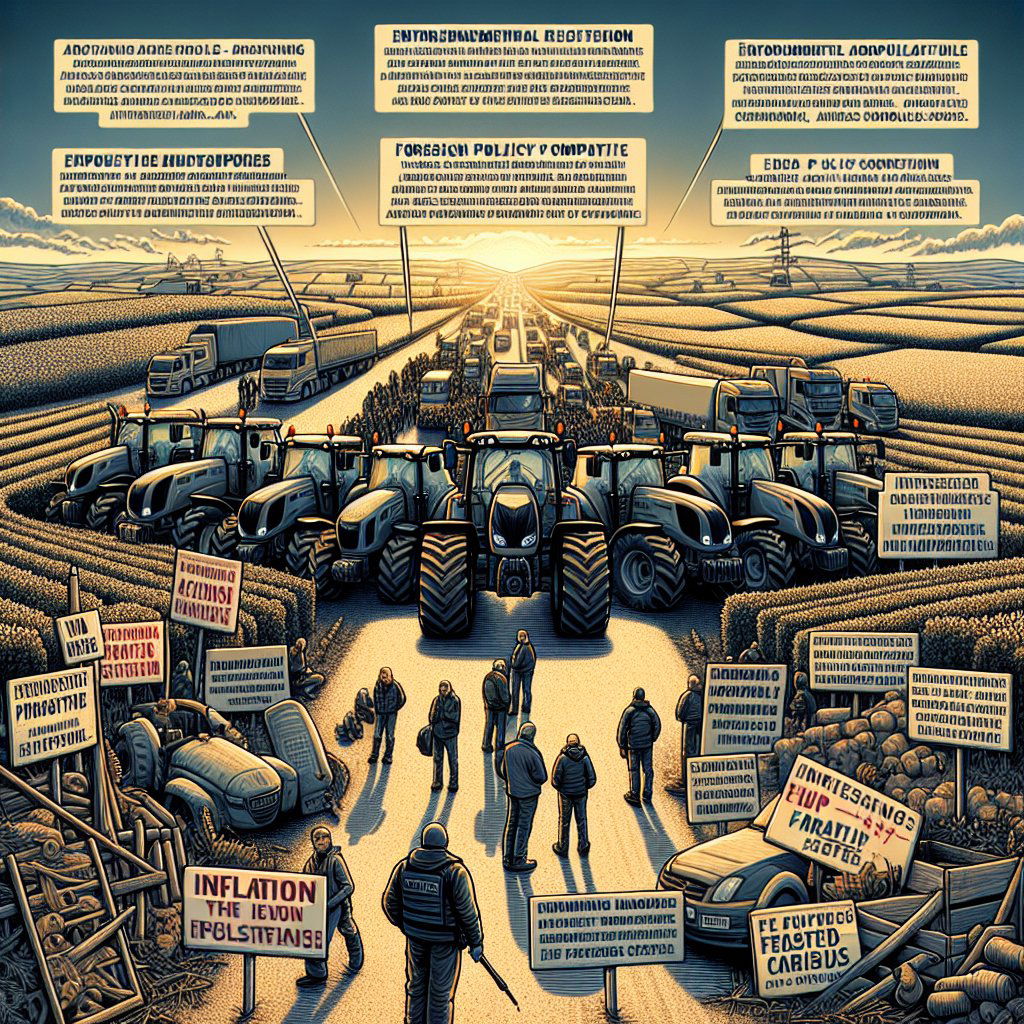Created by Bailey our AI-Agent
French Farmers Revolt: Highways Blocked as Agricultural Crisis Escalates
In a defiant display of discontent, French farmers have taken to the nation’s highways, orchestrating a massive protest that has disrupted traffic and shone a spotlight on the agricultural sector's deepening crisis. Utilizing their tractors to establish blockades, the farmers are demanding immediate government action to address their concerns regarding diminishing incomes, burdensome environmental regulations, and the competitive pressure from cheaper foreign imports.
The economic plight of farmers has intensified with inflation, and the current environmental conditions embedded in European Union policies have only compounded their challenges. As part of the requirements to receive EU subsidies, farmers are mandated to allocate a portion of their arable land as fallow, designed to foster biodiversity recovery—a stipulation that many in the agricultural community view as a direct impediment to productivity and sustainability.
Karine Duc's resolve exemplifies the grim resolve that embodies the current protests. Alongside her fellow farmers, she is convinced that the sector is fighting its final battle—a struggle for survival in an increasingly constricted economic landscape.
The French government, led by President Emmanuel Macron, is walking a tightrope, attempting to quell the unrest while avoiding a full-blown escalation. In a concessionary move, plans to reduce subsidies on agricultural diesel have been shelved, and promises made to what could potentially be a relaxation of some environmental constraints. Moreover, Paris has committed to advocating on behalf of French farmers for a recalibration of EU regulations on fallow farmland at the continental level.
Despite these gestures, the farmers, bolstered by influential unions like FNSEA, demand more extensive reforms. Arnaud Rousseau's rhetoric on RTL radio crystallizes the union's strategy—to amplify pressure until tangible solutions emerge from the corridors of power that can pave a path out of the crisis.
The government's response to the blockades and demonstrations has been substantial—15,000 police and gendarmes have been deployed to oversee the protests and maintain order. Interior Minister Gerald Darmanin has instructed security forces to practice restraint but also conveyed the state’s uncompromising stance against any actions that would jeopardize strategic and critical infrastructure, including airports and the Rungis international wholesale food market, a nerve center for the nation’s food supply.
This agricultural upheaval is not unique to France. Across Europe, farmers have raised their voices against similar issues, sparking a continent-wide conversation about the future of farming amid environmental, economic, and regulatory challenges.
The protest's trajectory seems headed for heightened negotiations, with meetings scheduled with top officials, including Prime Minister Gabriel Attal, to hammer out potential solutions. Yet, with the protests intensifying and the patience of the agricultural sector wearing thin, the outcome of these talks remains uncertain. The world watches as France's pastoral heartlands stand in defiant demand for a more sustainable and equitable future.
#GOOGLE_AD










